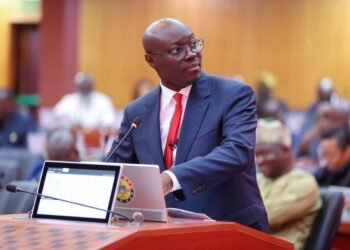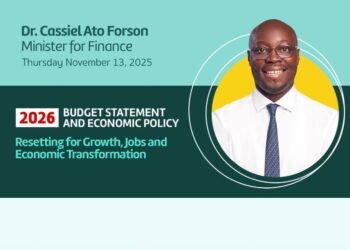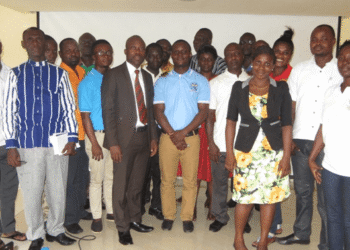Dean of the University of Cape Coast School Of Business, Professor John Gatsi, has reiterated the need for a long-term National Development Plan (NDP) to guide the country’s developmental agenda.
According to him, an economic management setup that did not put premium on a long-term National Development Plan could not deliver sustained benefits.
Speaking at the Centre for Social Justice 11th Leadership Dialogues series in Accra on the theme ‘Transforming Ghana’s Economy: Scape Goats, Root Causes and Hard Choices’, Prof. Gatsi, stressed the need for a well-developed long-term inclusive investment in human capital in an environment of upgraded use of technologies and the rule of law.
He urged the various political parties to embrace an inclusive national development plan in the development of their party manifestoes.
Prof. Gatsi said the political leaders were proud to seek fiscal glory for elongating the maturity profile of the country’s debts exceeding fifteen to thirty years and attempting a centenary bond but openly show disregard for a long-term national development plan as the basis for the country’s progress.
Prof. Gatsi observed that Ghana’s first President, Dr Kwame Nkrumah, delivered enduring developmental projects propelled by long-term national development plans. However, “Our leaders have over the years disregarded the long-term benefits of a development plan,” he said.
He argued that economic transformation was a continuous long-term process of ensuring value addition to all sectors of the economy with the result of higher labour productivity, higher value added outcomes of economic engagements and making industry and manufacturing responsive.
“To some, economic transformation is about structural change with illusive productivity gain, increase in Gross Domestic Product (GDP), moving from agriculture to manufacturing”.
Prof. Gatsi
Need to address technological and skills inequality among young people
To ensure economic transformation, Prof. Gasti said there is the need to address technological and skills inequality among young people with high density of the inequality manifesting in the apparent unbalanced development of the regions.
“It also requires that a better fiscal and monetary framework that creates value for debt is provided and ensure inclusive infrastructural investment”.
Prof. Gatsi
Prof. Gatsi further noted that the country’s economy is in distress due to high unsustainable public debt, high interest payment burden which dwarfed financial commitment to other sectors. He also mentioned inefficient spending and low revenue performance as some of the contributory factors.
“Over the years, real cost of debt on average has been higher than real growth rate hence the pronounced dependence on higher borrowing. In any fiscal management that the interest cost on debt is greater than real GDP growth, continuous borrowing to unsustainable path will be pronounced”.
Prof. Gatsi
Ghana’s 40-year development plan
All countries strive for sustainable growth and development. However, for countries to achieve the desired growth and development, efforts are needed to plan, regulate, control and guide the development process in the right direction.
This makes the need for development plans imperative in spearheading sustained growth and development. Ghana, a developing country, has adopted a 40-year development plan, with the vision of achieving “a just, free and prosperous society” by 2057.
The 40-year development plan is expected to empower Ghanaian businesses through appropriate policies and state support, to lead in the implementation of the Infrastructure Plan through skills development, enhanced equipment capacity and the local production of a wide range of construction materials, among others.
Despite its benefits, most governments in Ghana do not seem to follow this plan but relies only on their own manifestoes to guide their policies. This resulted in a situation where uncompleted projects are scattered across the country because of lack of continuity after change of government which costs the State over GH¢30 million in 2017, according to the Auditor General’s Report.
READ ALSO: Reining in inflation Is A Major Preoccupation Of The Government– President Akufo-Addo























